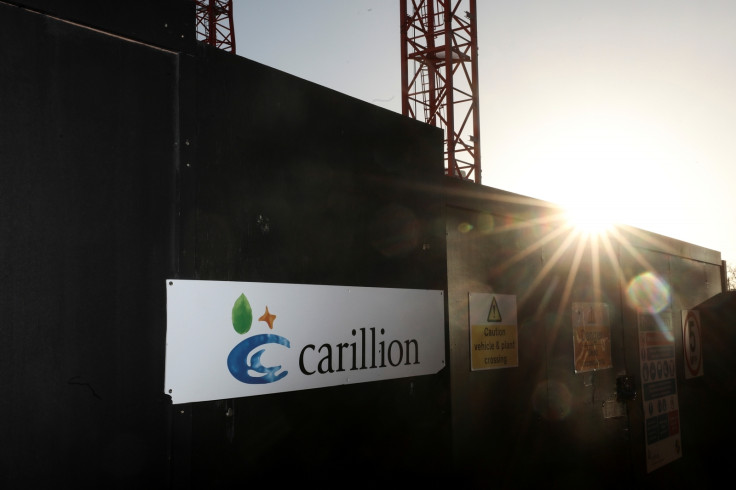Why Carillion was a massive Ponzi scheme
The Carillion story fits the oft-heard remark about 'socialism for the rich' and a large tab for everyone else.
It was ideology that wedded this government – and successive governments from all parties at that – to the notion that it was prudent to outsource government services to debt-addled firms like Carillion.
Not least because Carillion is – or was – little more than a middle man between government and the real companies which carry out the work.
As Grace Blakeley of the IPPR puts it in an excellent article, Carillion's business model "rests solely on arbitrage". In other words it doesn't actually do a great deal besides selling on the work to another company at commission. "It is a fiction of a firm whose existence is predicated upon the largesse of a corrupt and financialised neoliberal state," as Blakeley writes.
Carillion is – was - in effect a Ponzi scheme, and one that has been incredibly profitable for those sitting pretty at the top of the firm. Richard Howson, the former chief executive of Carillion, received £1.5 million in salary, including bonuses and pension, last year. Howson was still being paid £660,000 plus £28,000 in other benefits until as late as October, despite several profit warnings being issued in relation to the company's finances. Zafar Khan, another director, is set to bank a £425,000 base salary until September of this year.
Meanwhile dividend payments to shareholders have increased at Carillion for many years while the company simultaneously racked up a huge pension deficit.
It would be unfair to accuse Carillion bosses of complete inaction, however. In 2016 top brass at the company appeared to introduce rules which would make it harder to take bonuses back from directors - so-called clawback provisions - in cases of company mismanagement.
This is a story which adequately fits the oft-heard remark about 'socialism for the rich' and a large tab for everyone else. The move was taken just months before the company announced a disastrous £845 million write down.
While the government has pledged to continue paying Carillion sub-contractors who work in public sector jobs, those sub-contractors operating in the private sector face a turbulent future. The former directors of the company will do alright in the end, I'm sure, but things may be looking rather less rosy for those sub-contractors still owed vast sums of money by Carillion. The managing director of a company called Flora-tec, which is owed £800,000 by Carillion, told the BBC that he had already had to lay off 10 people.
This is not a large number of people admittedly (though I doubt that's much consolation if those 10 households have a mortgage and bills to pay), but this was just one anecdotal example. Look at the bigger picture and the potential repercussions are enormous. Around 30,000 small businesses are linked to Carillion along the supply chain. Many if not most of these companies will not now know if they are going to get paid. Layoffs on a significant scale seem inevitable.

Those who do manage to hang on to their jobs will likely face significant cuts to their pensions. Carillion owes so much to the banks that it is unlikely company assets will be able to be sold to finance the £600 million pensions black hole at the company. Lenders, understandably wishing to claw some of their money back, have swept in to pick among the wreckage of the firm and salvage anything of value. Trustees will now begin negotiations to enter the Pension Protection Fund, which if successful will safeguard most but not all of workers' pensions.
It is hard to make sense of all this without looking at the ideology that underpins it. The fact that the government granted several large contracts to Carillion – despite a series of prior warnings as to the continued viability of the company – will beggar belief in the eyes of most casual observers. But it makes sense through an ideological prism which automatically equates the private sector with efficiency and dynamism and the public sector with incompetence and malaise, even when the company in question is little more than a glorified Ponzi scheme.
There is absolutely no reason for the government to be procuring work through companies like Carillion in the first place. It is not, as some have suggested, that companies like Carillion ought to be taken into public ownership. It is that they should be abolished altogether as it were. If work does need to be outsourced it should be done so by a fully accountable government body, not by spiv-like middle men with a penchant for racking up eye-watering and unpayable debts on commission.
The real 'British disease' has for a long time now been business short-termism. This mentality has infected the government too. Indeed, the desire to get things done on the cheap is part of the reason the social care sector is in such a state. The company which says it can look after a local authority's elderly and infirm at the lowest price is invariably the company that lands the contract. Yet as anyone whose family has been on the receiving end of 'clockwatch care' will know (or anyone who has worked in the sector, as I have for a forthcoming book), value for money isn't always synonymous with good value.
Ultimately, it offers a reminder that, for all the vitriol directed at the Labour Party by the press, the government is every bit as 'ideological' as its detractors. Without ideology, it is hard to see how something as reckless and short-sighted as the outsourcing of contracts to Carillion could ever have been allowed to happen.
© Copyright IBTimes 2025. All rights reserved.






















